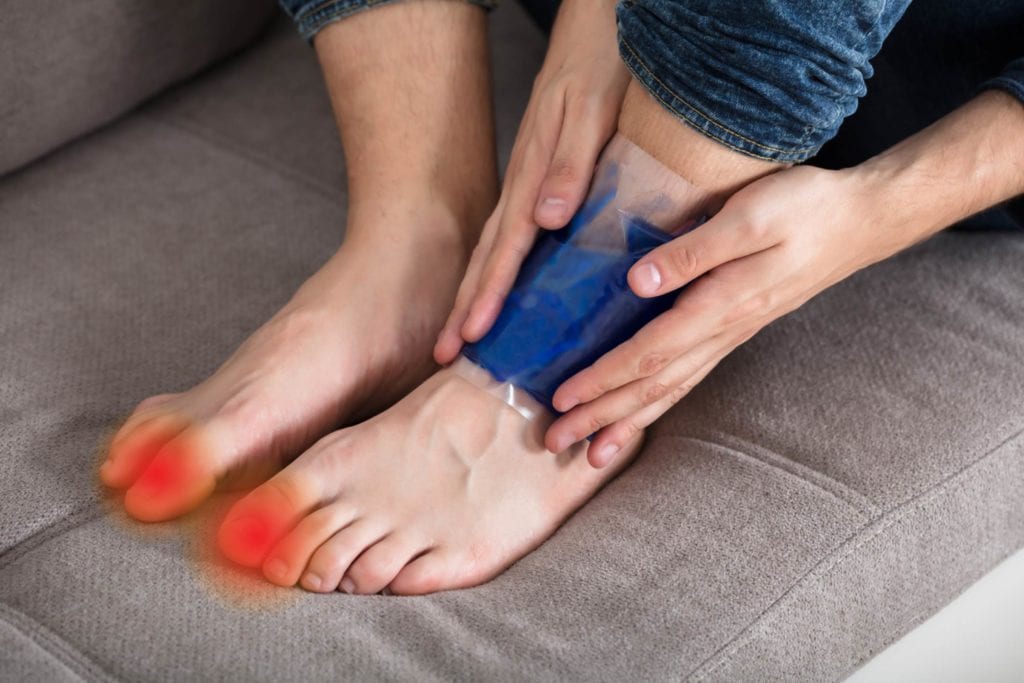What is gout? Gout is a painful medical condition that afflicts millions of people around the world and is usually caused by high uric acid levels in the blood. How is gout caused?
Uric acid is found naturally in the body, however, excessive uric acid production in the blood causes the condition. When there is too much purine in the bloodstream, the body makes excessive uric acid to break down the purines. The purines in foods, such as meats, dairy products and seafood have a purine content of between four and ten percent. Purine levels in your diet can be reduced by avoiding foods that contain too much purines and purine-rich foods like alcohol. If you have high purine foods, or if you have been experiencing a flare-up of gout symptoms, you should consult with your doctor and change your diet to a healthy, low purine diet.
There are two types of gout: primary and secondary gout. Primary gout occurs when uric acid crystals are formed in the joints and is more common in men than women. Secondary gout is a rare type of gout that is caused by too much urine in the blood stream and is more common in women than men. If you have been diagnosed with primary gout and have not had any treatment within six months of your diagnosis, you should be checked by your doctor for possible complications or serious health conditions.
You can treat gout symptoms at home using natural remedies that will help reduce pain and swelling and ultimately relieve pain. There are many home remedies for gout, such as garlic and apple cider vinegar, as well as over-the-counter medications and ointments that can relieve symptoms.
Apple cider vinegar is often used to treat gout. It has a cooling effect on the affected area and helps to remove excess urate crystals. To do this, simply mix a tablespoon of pure apple cider with one teaspoon of lemon juice and massage the affected joint regularly.
Garlic is another simple remedy for pain associated with gout. Simply peel a clove of fresh garlic and press it onto the affected area for about 10 minutes, then repeat the procedure several times.
The acidity of garlic helps remove excess uric acid from joints and also kills bacteria that cause gout

Other home remedies can be simple diet and lifestyle changes to help manage gout symptoms. A low purine diet, including fewer purine foods, will help reduce the frequency and severity of pain and swelling associated with gout.
While there is no sure-fire remedy, there are medications that can relieve the symptoms of gout. Some medications help reduce inflammation, while others help lower uric acid levels in the bloodstream. The combination of these medications, combined with dietary changes, can help control gout and prevent future attacks.
Many people who suffer from gout will experience flare ups, or episodes of extreme gout pain due to high levels of uric acid in the blood stream. When these episodes occur, they are usually followed by a rebound period where the gout pain returns and is worse than the first episode.
The most effective way to prevent gout from reoccurring is to avoid the foods that cause it in the first place. Foods that contribute to gout are usually processed meats, shellfish, alcohol, dairy products, chocolates, and processed meats, peas, bananas, cheese, onions, and garlic. These foods are high in purines and should be avoided if you want to prevent gout attacks.
If you already suffer from gout, you may be experiencing symptoms that are similar to those of a secondary gout attack, so it is wise to take a look at your diet to see what foods have been contributing to the development of the condition. It is best to cut down on those high purine foods and replace them with a healthier diet with more vegetables and fruits and less purine rich foods.
If you are experiencing a gout attack, it is important to try to keep your body as healthy as possible. Make sure to drink plenty of water on a regular basis to flush out the uric acid and help to maintain a proper uric acid level in your body. Eat fresh fruits and vegetables and limit your consumption of purines. Drinking plenty of fluids will help flush the excess uric acid out of your system.